Fentanyl: More than 50 NI deaths in four years
- Published
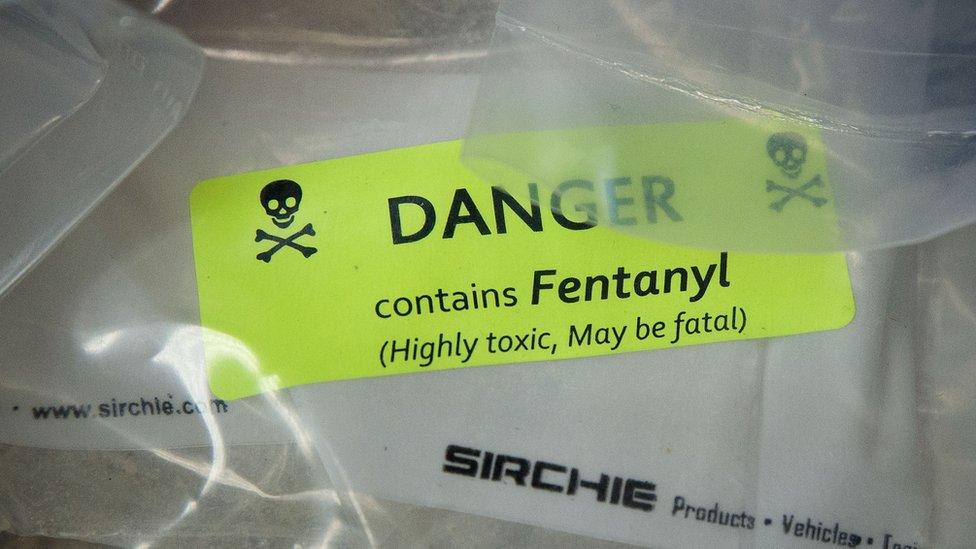
Fentanyl is considered to be 50 times more potent than heroin.
There were more than 50 deaths in Northern Ireland linked to the drug fentanyl between 2014 and 2018.
And government figures show there were a further five such deaths between January and March of 2019.
A Belfast city councillor has said health professionals fear deaths linked to the drug, which is 50 times more potent that heroin, will keep rising.
The SDLP's Paul McCusker, who works with drug users, said the figures were very concerning.
He said: "I have personally dealt with a number of people who have used fentanyl and speaking to health professionals they advise that we haven't seen the full effects of this potent drug and fear that deaths will continue to increase.
"Heroin and fentanyl are becoming easier to obtain and the supply of these types of drugs is on the increase, the worry is that when the individual buys the drugs they are unaware of what is contained in them, putting them at more risk.
"You can buy [fentanyl] patches starting from £10."

What is fentanyl?
Fentanyl is an extremely strong painkiller, prescribed for severe chronic pain, or breakthrough pain which does not respond to regular painkillers.
It is an opioid painkiller which means it works by mimicking the body's natural painkillers, called endorphins, which block pain messages to the brain.
The risk of harm is higher if the wrong dose or strength is used.
Typical symptoms of a fentanyl overdose include slow and difficult breathing, nausea and vomiting, dizziness and increased blood pressure.

Figures obtained by BBC News NI show that between 2014 to 2018 there were 51 deaths in NI where the death certificate mentioned fentanyl, compared to 15 from 2010 to 2013.
The figure rose from one in 2013 to 15 in 2014.
Mr McCusker said fentanyl is highly addictive, while there is also a lack of early intervention programmes in NI.
"The increase in fentanyl deaths may be due to illegally or illicitly made fentanyl which is being mixed with dangerous chemicals putting the individual at serious risk," he said.
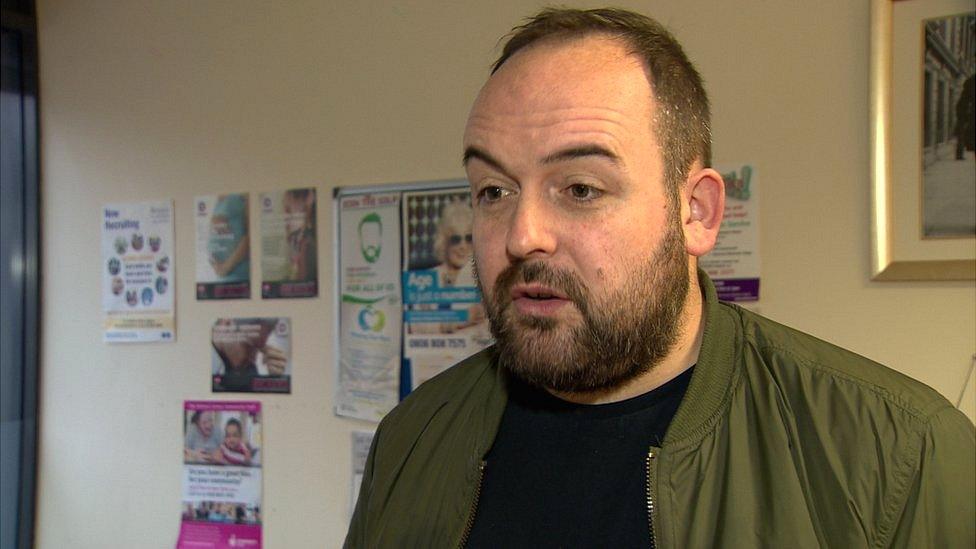
Belfast SDLP councillor Paul McCusker
"Fentanyl abuse is extremely dangerous, particularly when it is mixed with heroin, as it slows down your breathing and reduces your consciousness levels which puts the person at great risk of their breathing stopping.
"This drug should always be managed in a medical environment."
In January of this year, the Advisory Council on the Misuse of Drugs (ACMD) said that a rise in the number of fentanyl deaths in the UK was being driven by the drug being added to heroin.

The Public Health Agency says that a tiny amount of fentanyl can be deadly to a human
It said the government should introduce controls to tackle the "emerging threat" the painkiller poses.
However, Chris Rintoul, from the charity Extern, said deaths involving fentanyl in Northern Ireland mainly involved taking the drug from a transdermal patch used for severe pain.
"If this is used in other ways such as sucking the patch, overdose is likely," he said.
Michael Owen, the Public Health Agency's regional lead for drugs and alcohol, said even a tiny amount of fentanyl can be deadly.
"Anyone using fentanyl is putting themselves at a very high risk of overdose and death, so the PHA would discourage use of fentanyl in any form," he said.
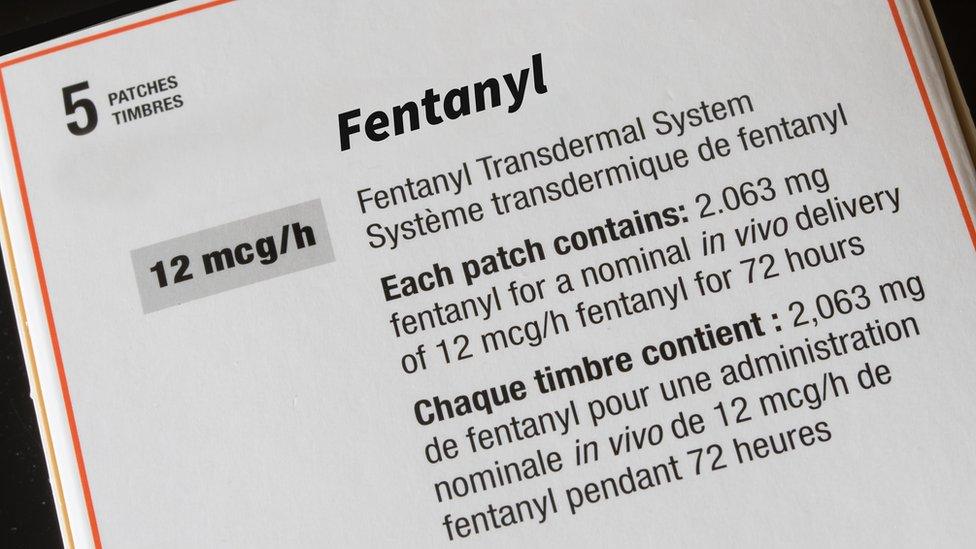
Fentanyl patches are being sold for as little as £10
"We see many different types of drugs being used in Northern Ireland and while it may not be widespread, fentanyl is extremely potent, and can be mixed in with another substance, for example heroin or cocaine, and it may also be sold under the pretence it is another substance.
"Mixing drugs, which includes alcohol and prescription medication, is the most common cause of overdose and drug-related death and should be avoided.
"It can increase the toxicity of already potentially harmful substances and increases the risk of death."
However, Mr Rintoul from Extern, said "so far there is no evidence of fentanyl being added as a powder to other drugs like heroin, such as is happening in north America".
The Northern Ireland Statistics and Research Agency (NISRA) figures show that the drug linked to most deaths in Northern Ireland between 2014 and 2018 was Diazepam.
The benzodiazepine, first marketed as valium, was linked to 249 deaths in Northern Ireland in four years.
- Published1 April 2019
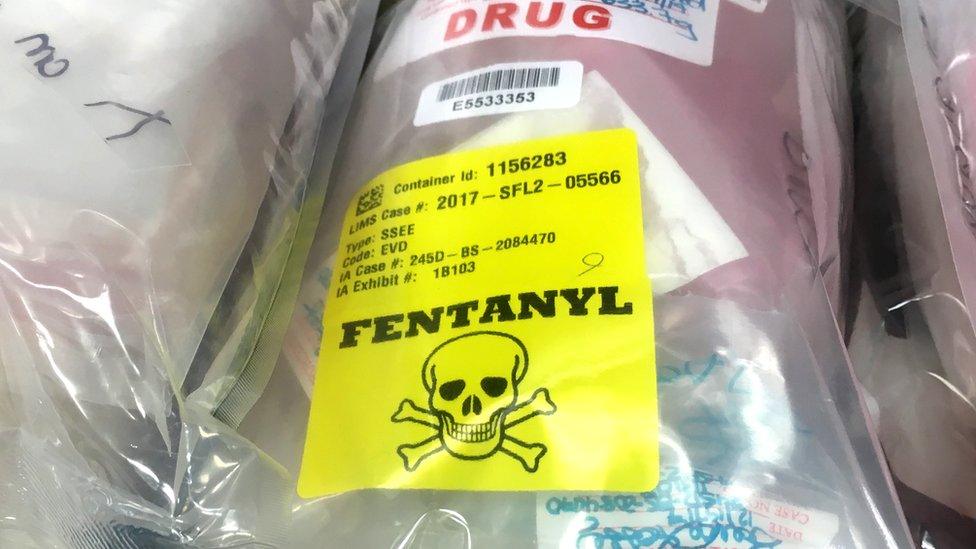
- Published10 August 2017
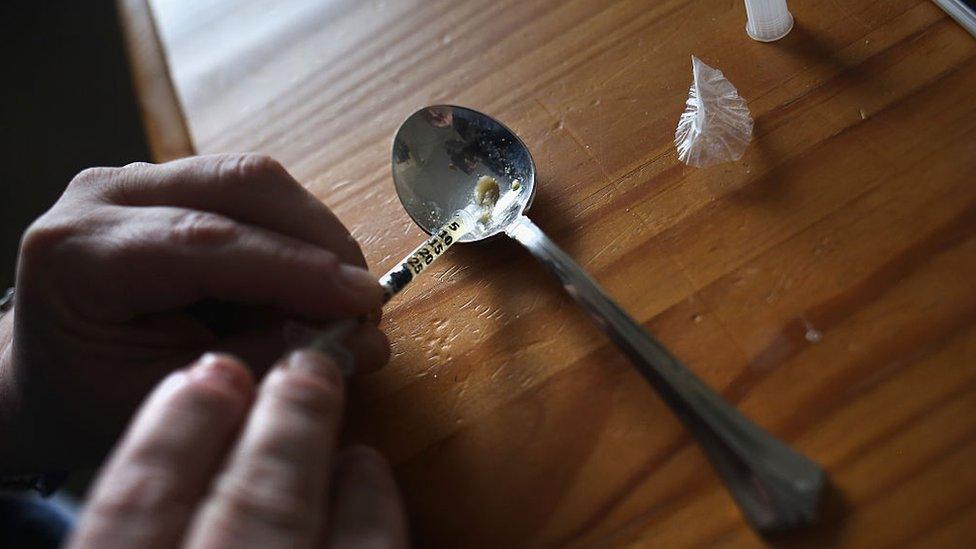
- Published22 February 2018